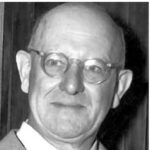Links to the works by P. G. Wodehouse covered in this section:
Books: Full List Jeeves Blandings GEMs
Short Stories: Full List Jeeves Blandings Mr. Mulliner Drones Club Oldest Member Ukridge GEMs
Commentary:
 In my view, when we talk about the world of humorous fiction, there is P. G. Wodehouse and then there is everyone else. Wodehouse stands head and shoulders above the rest, because of his unique style which combines great plots, interesting characters and most importantly an incredible command of the English language. He fashioned his own unmistakable brand of humor, and his writing never fails to bring a smile to the reader’s lips. That’s why he has been aptly described as ‘English literature’s performing flea’. (Note: For more interesting details on P. G. Wodehouse, please check out this post.)
In my view, when we talk about the world of humorous fiction, there is P. G. Wodehouse and then there is everyone else. Wodehouse stands head and shoulders above the rest, because of his unique style which combines great plots, interesting characters and most importantly an incredible command of the English language. He fashioned his own unmistakable brand of humor, and his writing never fails to bring a smile to the reader’s lips. That’s why he has been aptly described as ‘English literature’s performing flea’. (Note: For more interesting details on P. G. Wodehouse, please check out this post.)
Wodehouse created an amazing universe of comic characters, most of them circulating within their own ‘galaxies’ but with an occasional crossover here and there (usually only for the minor characters). Here is a list of his best-known recurring characters and/or settings:
- Jeeves and Bertie Wooster
- Blandings Castle (with Lord Emsworth and his clan)
- Psmith
- Mr. Mulliner (and his huge circle of relatives)
- Uncle Fred
- Drones Club (various members)
- Oldest Member (golf stories)
- Monty Bodkin
- Ukridge
Jeeves is perhaps the most famous Wodehouse character, being known even to many non-Wodehouse fans as a ‘gentlemen’s gentleman’. Jeeves and his employer, the dull-witted and accident-prone Bertie Wooster, appeared in many novels and short stories with a wide cast of supporting characters including: Aunt Agatha (the ‘scary’ one), Aunt Dahlia (the ‘good’ one, but who got Wooster in trouble more often than not), Anatole, Gussie Fink-Nottle, Sir Roderick Glossop, Sir Watkyn Bassett and Roderick Spode.
An interesting side note about Bertie Wooster is that he was Wodehouse’s second attempt at creating a lovable chump. The precursor to Bertie Wooster was Reggie Pepper, who was in many respects was similar to Wooster and served as his early prototype. It is unclear why Wodehouse changed the name and transitioned to a different character, but whatever the reason the fact remains that many of the early Reggie Pepper stories were later revised to feature Wooster and Jeeves instead.
The popularity of the Blandings Castle book series starring Lord Emsworth and a wide cast of supporting characters, rivals that of the Jeeves series. The principal characters include many members of Lord Emsworth’s clan such as his son Freddie Threepwood, his sister Constance Keeble and his brother Galahad Threepwood, as well as his butler Beach, his pig the Empress of Blandings, his sometime secretary Rupert Baxter and the obnoxious Duke of Dunstable, a frequent visitor to Blandings. Interestingly, Blandings is also where many of Wodehouse’s worlds intersected, with visits from crossover characters such as Psmith, Uncle Fred, Monty Bodkin and many other minor characters.
Among the other Wodehouse creations, my favorite is the irrepressible and unflappable Psmith, who made his debut in one of Wodehouse’s early school stories Mike and Psmith. All of the Psmith books are delightful and memorable, and it’s a shame that Wodehouse featured Psmith in only four novels and then stopped writing about him. The only consolation, perhaps, is that Wodehouse later created a sort of ‘elderly Psmith’ in the form of Uncle Fred, more formally known as Lord Ickenham. However, the four Psmith novels are unmatchable, and all of them are classified as GEMs in my list of Wodehouse novels.
Another of my Wodehouse favorites is Mr. Mulliner, with his unending stories about his relatives told to a patient (but not necessarily interested) audience at a bar named the Anglers’ Rest. Mr. Mulliner’s stories are usually in the form of tall tales about his innumerable cousins, nieces, and nephews. These short stories should all be taken as being tongue-in-cheek, but they are nevertheless highly enjoyable and rarely fail to brighten one’s day.
My least favorite Wodehouse character is Ukridge. It would not be inaccurate to describe Ukridge as an arrant knave with few, if any, redeeming qualities. He is a social parasite who is in constant need of money, so in most of the stories he is preying on his aunt, the narrator Corky or other unsuspecting victims of his get-rich-quick schemes. Unfortunately, there are people like this in the world, and Wodehouse tried to depict such a character in as appealing a way as possible, but somehow these kinds of stories never clicked with me.
Note that in my lists, I have excluded Wodehouse’s early writings which are not as well-written or enjoyable as his later work. Wodehouse himself described his early writing career as a ‘period of apprenticeship’. Even counting from the time he started writing books of consistently high quality (around 1910), his career spanned over 65 years! As one of his fellow humorists observed, “Wodehouse’s works continue on their unique way, unmarked by the passage of time”.
